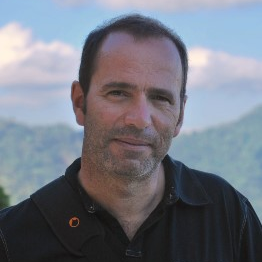Seagrass Ecosystems in a Changing World
A special issue of Oceans (ISSN 2673-1924).
Deadline for manuscript submissions: closed (30 June 2021) | Viewed by 4026
Special Issue Editors
Interests: global change biology; ocean acidification; seagrasses; coralline algae; ecophysiology; calcification
Interests: the context of integrative seagrass ecology; capacity of marine plants; population, community and ecosystem analysis; ecophysiological/biochemical measurements; genetic and transcriptomic techniques
Special Issue Information
Dear colleague,
Climate change is introducing new pressures in marine ecosystems worldwide. Seawater chemistry is being altered by the increase of total dissolved inorganic carbon (Ci) and the decrease of pH, extreme weather events such as storms and marine heatwaves are ever more frequent and intense, and sea level is steadily rising. In this disturbing scenario, coastal marine ecosystems dominated by seagrasses are reacting at different levels, from the genes to the ecosystem. Nonetheless, very little is known about the potential effects that climate-change-associated stressors may have on seagrass biology and ecology, despite the fact that these plants are among the world's most productive marine ecosystems, with a very high ecological and economical importance.
This Special Issue welcomes contributions related to all aspects of climate change effects on seagrasses, particularly those related to the ecology, biology, and physiology of these marine macrophytes. Contributions based on innovative genomic, metabolomic, and proteomic tools are encouraged, as are those involving multilevel approaches, from genes to the whole-plant level. Studies addressing species interactions (herbivory, epiphytes, allelopathy) and the seagrass microbiome are also welcome.
Dr. João Silva
Dr. Lázaro Marín-Guirao
Guest Editors
Manuscript Submission Information
Manuscripts should be submitted online at www.mdpi.com by registering and logging in to this website. Once you are registered, click here to go to the submission form. Manuscripts can be submitted until the deadline. All submissions that pass pre-check are peer-reviewed. Accepted papers will be published continuously in the journal (as soon as accepted) and will be listed together on the special issue website. Research articles, review articles as well as short communications are invited. For planned papers, a title and short abstract (about 100 words) can be sent to the Editorial Office for announcement on this website.
Submitted manuscripts should not have been published previously, nor be under consideration for publication elsewhere (except conference proceedings papers). All manuscripts are thoroughly refereed through a single-blind peer-review process. A guide for authors and other relevant information for submission of manuscripts is available on the Instructions for Authors page. Oceans is an international peer-reviewed open access quarterly journal published by MDPI.
Please visit the Instructions for Authors page before submitting a manuscript. The Article Processing Charge (APC) for publication in this open access journal is 1600 CHF (Swiss Francs). Submitted papers should be well formatted and use good English. Authors may use MDPI's English editing service prior to publication or during author revisions.
Keywords
- climate change
- seagrasses
- ecology
- local and global stressors






